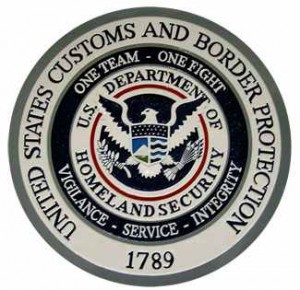CBP Notifies Travelers of Change in Policy for Regulating Cooked Eggs from Mexico
Written by Post Public Information Representative, Feb 19, 2012, 0 Comments
Courtesy Richard Pauza,
 LAREDO — Effective immediately, travelers may once again bring fully cooked eggs into the U.S. from Mexico . In March 2011, the United States Department of Agriculture (USDA) Animal and Plant Health Inspection Service (APHIS) informed CBP that APHIS was adding restrictions to live bird and poultry imports to protect the United States from highly pathogenic avian influenza (HPAI). This rule also amended existing regulations related to exotic Newcastle disease (END). These changes meant that egg and egg products from HPAI or END regions would need a Veterinary Services (VS) import permit for entry into the U.S. Consequently, thoroughly cooked eggs could not be brought in passenger baggage by travelers arriving from Mexico , where END is recognized by APHIS as existing.
LAREDO — Effective immediately, travelers may once again bring fully cooked eggs into the U.S. from Mexico . In March 2011, the United States Department of Agriculture (USDA) Animal and Plant Health Inspection Service (APHIS) informed CBP that APHIS was adding restrictions to live bird and poultry imports to protect the United States from highly pathogenic avian influenza (HPAI). This rule also amended existing regulations related to exotic Newcastle disease (END). These changes meant that egg and egg products from HPAI or END regions would need a Veterinary Services (VS) import permit for entry into the U.S. Consequently, thoroughly cooked eggs could not be brought in passenger baggage by travelers arriving from Mexico , where END is recognized by APHIS as existing.
Now, provided Customs and Border Protection officials can visually confirm that any eggs and egg products are thoroughly cooked throughout, a VS import permit is no longer required for processed eggs and egg products from Mexico , including cooked eggs entering in passenger baggage or carry-on, or in meals for personal consumption. Examples of processed eggs and egg products include, but are not limited to, hard-boiled eggs, egg sandwiches, egg burritos, and meals containing identifiable eggs as part of the fully cooked meals.
CBP officials enforce hundreds of laws at the border for more than 40 federal, state, and local law enforcement agencies.
As a reminder, travelers must declare all food items to CBP officials. Failure to declare prohibited agricultural items can result in civil penalties. Penalties for personal importations of undeclared, prohibited agricultural items, depending on the severity of the violation, can run as high as $1,000; and up to more than $250,000 for commercial importations.



